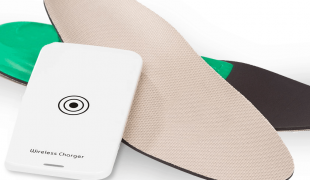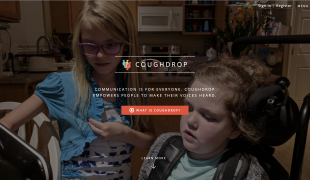- 11257
- 768
- 9
- 9
- 0
- Help Ukraine
About the solution
The gloves, which can be used for phone calls or face–to-face conversations, combine sensors on the fingers with a controller that analyzes hand motions in the air, compares them to a library of sign language, and then generates the verbal equivalent of the sign through a smartphone. They use flex sensors, gyroscopes, touch sensors, and accelerometers and can be adjusted to any form of sign language. The goal of the gloves is to allow the estimated 70 million people who use sign language to communicate with people who don’t.
“Once we started talking, it all sort of clicked,” said Maxim Osika, a member of Team Quad Squad. “We wanted to create something that could help them in their pursuit to communicate. The hearing-impaired students try really hard to do the best they can, but sometimes it’s really difficult.”
Maxim and the others researched the idea and were surprised to learn that no such devices are available on the market. The team decided it would create a pair of gloves that could translate sign language into spoken word.
That day, Enable Talk was born.
They started building the prototype for the gloves in January 2012 and worked though weekends and nights to finish in time for the Microsoft 2012 Imagine Cup in Sydney, Australia, in July. Enable Talk won first place in the innovation category, beating 350 students from 75 countries.
Adapted from: http://bit.ly/2jrn8ab
https://www.youtube.com/watch?v=HCAwPBbDkhk
这些解决方案不应包括使用药物,化学品或生物制品(包括食品);创伤性设备;冒犯性的,商业或内在危险的内容。该解决方案未经医学验证。请谨慎进行!如果您有任何疑问,请咨询健康专家。
DISCLAIMER: This story was written by someone who is not the author of the solution, therefore please be advised that, although it was written with the utmost respect for the innovation and the innovator, there can be some incorrect statements. If you find any errors please contact the patient Innovation team via info@patient-innovation.com
-
-
452
-
2
-
9933

SmartSole GPS - Tracker for people with Alzheimer's, dementia and autism
COMMUNICATION: Communicating, whether by speaking, listening, or other means
WALKING: Walking
CAREGIVING
Alzheimer's Disease
Dementia (Alcoholic Dementia, Vascular Dementia)
Body-Worn solutions (Clothing, accessories, shoes, sensors...)
Difficulty coordinating movements
Loss of balance
Social withdrawal or isolation
Cognitive impairment
Memory loss
Irritability or anger outbursts
Confusion
Restlessness or feeling slowed down
Anxiety
Panic attacks
Difficulty controlling impulses
Mood swings
Feelings of guilt or worthlessness
Suicidal thoughts or behaviors
Hallucinations (perceiving things that aren't there)
Dizziness or lightheadedness
Fatigue
Restoring mobility
Promoting self-management
Building Supportive Community Relationships
Promoting inclusivity and social integration
Improving Speech and Communication
Preventing (Vaccination, Protection, Falls, Research/Mapping)
Raise awareness
Caregiving Support
Child and Adolescent Psychiatry
General and Family Medicine
Internal Medicine
Medical Genetics
Neurology
Pediatrics
Psychiatry
United States
-
-
-
309
-
0
-
3039

Grandson Tanguy de Gélis created Famileo - a platform that enabled seamless communication between generations.
CAREGIVING
COMMUNICATION: Communicating, whether by speaking, listening, or other means
Educational/Leisure device (book, toy, game...)
Book/Comic
Promoting self-management
Building Supportive Community Relationships
Promoting inclusivity and social integration
Enhancing Mental Health
Improving Speech and Communication
Raise awareness
General and Family Medicine
Internal Medicine
Aging
France
-
-
-
349
-
0
-
3810

Brian Whitmer, a software developer and father, created a communication system for his daughter with Rett Syndrome.
COMMUNICATION: Communicating, whether by speaking, listening, or other means
Neuromuscular Disorders
Videogame
App (Including when connected with wearable)
Enhancing health literacy
Managing Neurological Disorders
Building Supportive Community Relationships
Promoting inclusivity and social integration
To improve Treatment/Therapy
Preventing (Vaccination, Protection, Falls, Research/Mapping)
Raise awareness
Caregiving Support
General and Family Medicine
Internal Medicine
Neurology
Pediatrics
Physical Medicine and Rehabilitation
United States
-
 zh
zh